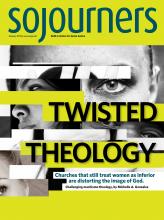THE MOST common image of the assassination of President Kennedy is embedded in the collective consciousness due to the fact that it was the subject of what may be the most-seen film in history, Abraham Zapruder’s 26-second home movie, grainy and garish in color and fact. The more recent eruption of reality television may have left us nearly unshockable, but a long, hard look at Zapruder’s short, hard film is still horrifying. The most provocative context in which I’ve seen the film located is Stephen Sondheim’s meaty musical Assassins. The Broadway production had Neil Patrick Harris as Lee Harvey Oswald with the film projected onto his white T-shirt. That the show took place at Studio 54 served to underline the demonic bargain at the intersection of the military-industrial-circus complex: The nightclub theater location satirized the fact that our stories about killing can either critique the cultural appetite for destruction or serve to perpetuate more of it as a form of entertainment.
If Assassins was the most provocative screen for the Zapruder film, the most politically complex is Oliver Stone’s 1991 movie JFK, now being rereleased to mark the assassination anniversary. It’s one of the greatest examples of cinematic craft applied to polemic (current examples are Captain Phillips and 12 Years a Slave)—edited like a dance, with a television miniseries’ worth of big name actors (Jack Lemmon, Sissy Spacek, Walter Matthau, Donald Sutherland, John Candy) in small roles holding up the edifice of big speechifying done by Kevin Costner and Tommy Lee Jones. It’s a thrilling film, and it has intellectual substance—the point is not whether or not the conspiracy theory posited in JFK is true, but that human beings “sin by silence” when we should speak.
Read the Full Article
